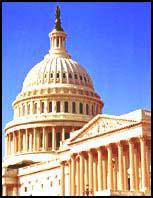Frank Havenner

Franck Havenner was born in Baltimore County, Maryland, on 20th September, 1882. After studying at Stanford University he became a journalist in San Francisco.
A member of the Progressive Party Havenner was elected to the 75th Congress in 1936. He later joined the Democratic Party and served in Congress until January 1941.
Havenner was a member of the California Railroad Commission between 1941 and 1944. He was elected to Congress in November 1944. An early victim of McCarthyism he lost his seat in 1952. Franck Havenner died in San Francisco on 24th July, 1967.
Primary Sources
(1) Emanuel Celler, You Never Leave Brooklyn (1953)
A political advertisement inserted in the San Francisco Chronicle of Monday, October 30, 1944, carried an accusation of Communism against Representative Frank Havenner running for Congress in which was set forth unsupported testimony given before a so-called Dies subcommittee on July 16, 1940 in Beaumont, Texas, at which Mr. Dies was the only member of the committee present.
On January 11, 1945, Mr. Havenner, Representative from California, rose on the floor of the House and stated, among other things: "At the time of this meeting I was a Member of the House of Representatives and had been for three and one-half years next proceeding that date. I had never received any notice of this hearing prior to the time it was held and have never received any notice of the hearing from the Special Committee on Un-American Activities or from any other person up to the present time. The first knowledge I had that such a subcommittee meeting was held was more than four years later when I read this political advertisement... I have never been given an opportunity to appear before that committee to face my accuser or to reply to his testimony. If the chairman of the committee believed that this sworn testimony was true it was his duty to report it to the House of Representatives and recommend that I be brought before the bar of the House and expelled. If there was any doubt in his mind as to the truth of this testimony, it certainly was his duty to notify me and call me before his committee to disprove the testimony, if I could . . . instead the record of this secret meeting was pigeonholed for more than four years, when suddenly and mysteriously it was made available for use against me in political campaign."
